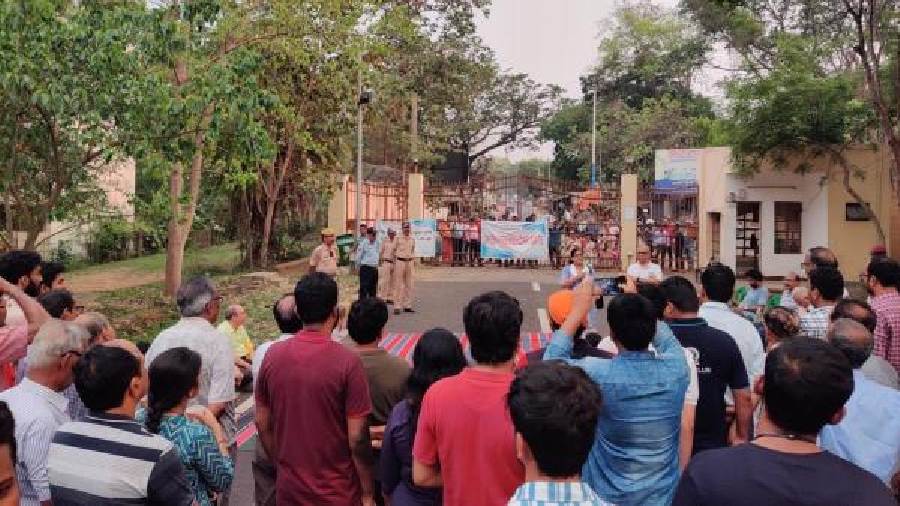The IIT Council has decided to scale up the engagement of professional counsellors and ensure that the tech school authorities interact with every student for at least five minutes each semester as part of measures to curb the recurring suicides.
A meeting on Tuesday, chaired by Union education minister Dharmendra Pradhan, also discussed exit options for students who are academically weak.
The suggested steps include the creation of posts such as psychological counsellors — one for every 250 students — and professional psychological counselling supervisors — one for every eight counsellors — at each IIT.
At present, the IITs ask senior students, known as teaching assistants or wingmates, to inform the institutes about any student they think is depressed. The student is then provided support. This will continue.
In the past five years, 34 students have ended their lives in the various IITs.
The IITs have witnessed more student suicides than the NITs.
IIT Gandhinagar director Rajat Moona has made a presentation on the possible reasons for depression among students. According to the presentation, depression afflicts young adults because of factors such as self-esteem issues, peer and academic issues, relationship problems, loss of confidence because of family pressure, (taunts over) sexual orientation and an unsupportive environment.
Handling mental health needs a three-pronged approach — identification of cases, provision for care, and medical treatment for chronic cases, Moona said.
The measures suggested by Moona include meeting each student over a five-minute interview once every semester and following it up, if necessary, with counselling services, and identifying students who need medical attention.
“The council discussed several steps needed to ensure the mental health and wellness of students at IITs. The council focussed on the need for a robust grievance redress system, increasing psychological counselling services, reducing pressure and highlighting the importance of reducing fear of failure/ rejection among students,” a media release issued by the education ministry after the meeting said.
Rajeev Kumar, a faculty member at the School of Computer and System Sciences at JNU and former IIT Kharagpur teacher, said the students end their lives when they are in extreme distress. Such students do not tend to go to counsellors, he said.
“The students in extreme distress share their problems with people whom they trust. They could be roommates, hostel friends, teachers or family members,” Kumar said.
“Some students may not share it but the students or teachers close to them get to know the condition of ailing students from their behaviour. The institutes should encourage the reporting of such cases by all people concerned instead of depending on select teaching assistants or wingmates. An immediate solution, both medical and counselling, should be provided.”
Kumar said that tutorials and orientation programmes should be organised for those who are weak academically. The pace of the semester should be slowed down for such students. Despite that, if they do not improve as expected, they should be allowed a graceful exit.
At the meeting, the minister said that students should be allowed multiple exit options in line with the national education policy. The details will be worked out.
The council resolved to enhance the tenure of support to female PhD students for one additional year.
The council discussed a proposal to introduce four-year BEd courses. The matter has been left to the IITs to decide.











